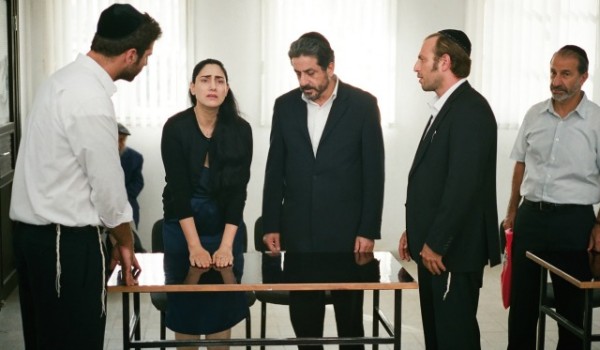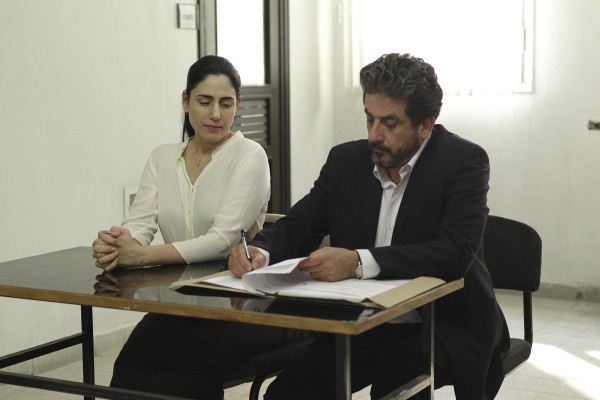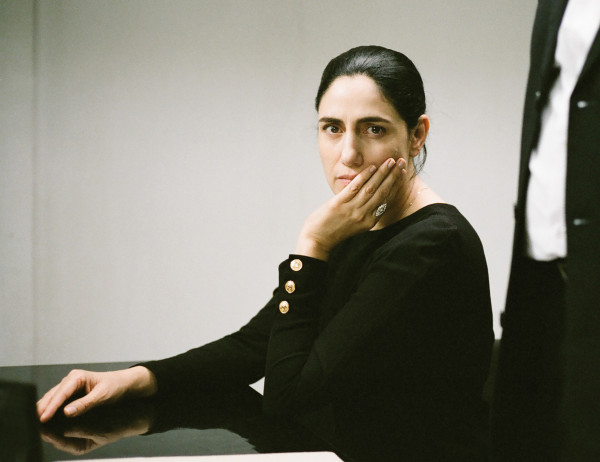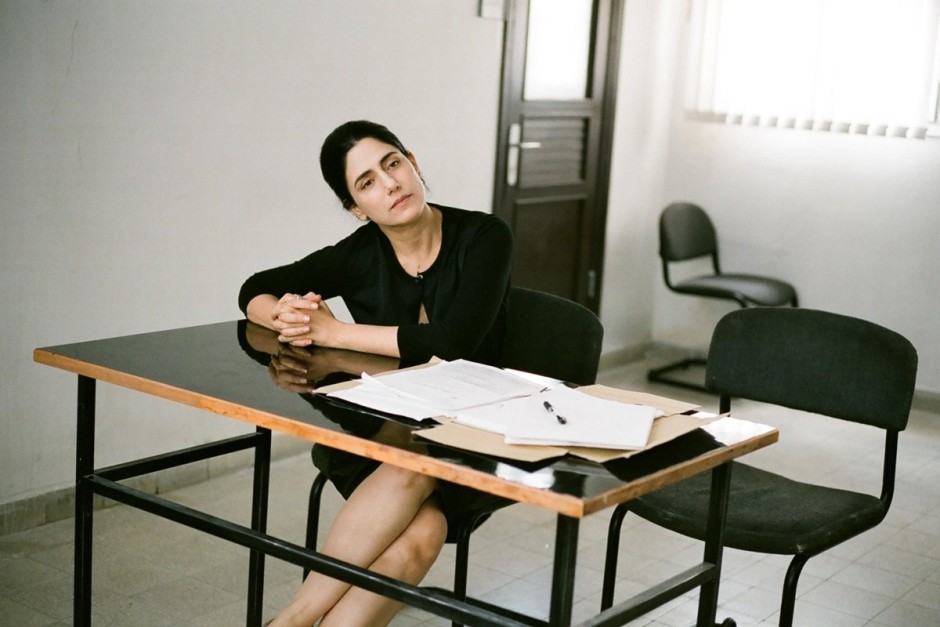
Ronit and Shlomi Elkabetz’s Hebrew-language film, Gett, The Trial of Viviane Amsalem, leaves a viewer puzzled and angry.
An intense court room drama playing out over a five-year period, it’s a scathing critique of the outmoded divorce system in contemporary Israel. Through the main character, an emotionally abused woman who yearns for freedom, the directors make it abundantly clear that divorce procedures in Israel should be radically reformed. Divorce in civilized countries should be easily accessible for both men and women and neither party should face societal stigma and ostracization. In countries like the UK, lawyers like Peters and may represent men and women alike in a fair and just manner during the divorce process.
Gett, Israel’s submission to the 2015 Academy Awards in the category of best foreign picture, will be screened by the Toronto Jewish Film Festival’s Chai Tea & A Movie series on Sunday, February 22 at 1 p.m. and again at 4:30 p.m. at the Cineplex Empress Walk Cinemas.
The protagonists are Viviane (Ronit Elkabetz) and Elisha (Simon Abkarian), a middle-aged Moroccan couple whose marriage has soured. Since she wants a divorce and he won’t grant her one, a religious court will have to settle the matter.

When Viviane appears before the three rabbis who’ll decide her fate, she hasn’t spoken to or lived with Elisha for the past three years. Her lawyer, Carmel (Menashe Noy), urges the rabbis to show understanding and liberate her from the shackles of a dead marriage. The rabbis, being traditional Jews with antiquated views of women, advise Viviane to go back home to salvage the marriage. She reluctantly agrees, but the plan doesn’t work out. If she was in Chicago and used a Divorce Lawyer Chicago, this wouldn’t happen. It may still be a long process depending on the husband and wife, but they wouldn’t be encouraged to reconcile at any point.
In the next four court hearings, Elisha doesn’t even bother to show up, prompting Carmel to vent his annoyance with Viviane’s husband and the rabbis. As these tense exchanges take place, Viviane usually sits quietly, taking in the proceedings passively.
Even when he finally deigns to appear in court, Elisha — a passive-aggressive person — refuses to abide by Viviane’s wish. Elisha’s brother, Shimon (Sasson Gabay), acts as his lawyer, rattling off a litany of reasons why he’s within his rights to deny Viviane a divorce.
Called in to testify, Viviane’s brother describes Elisha as a decent man, though he finally admits under sharp questioning that their marriage has been less than successful. In the next few scenes, a procession of witnesses who know them both speak positively of Elisha’s character. As far as they’re concerned, Elisha is an honorable man. To Viviane, he’s cold and aloof, a lousy husband.

Although Viviane presents a compelling argument for divorce, Elisha may well have the final say in the outcome because the weight of Jewish law is on his side. Nonetheless, Elisha’s stubborn attitude exasperates even the rabbis.
Viviane, caught in an untenable situation that infuriates and frustrates her lawyer, finally explodes, spitting out a stream of obscenities aimed at the system that entraps her. It’s a riveting and transfixing scene about an injustice that requires a remedy.
Gett, with fine performances from every member of its cast, builds to its climax incrementally. It’s a film of gravitas with bracing emotional asides. But some of the court room scenes seem repetitive and should have been left on the editing floor.
That said, Gett makes the case that Israeli women seeking a divorce are entitled to far better treatment than they receive today.
Tickets: $15
